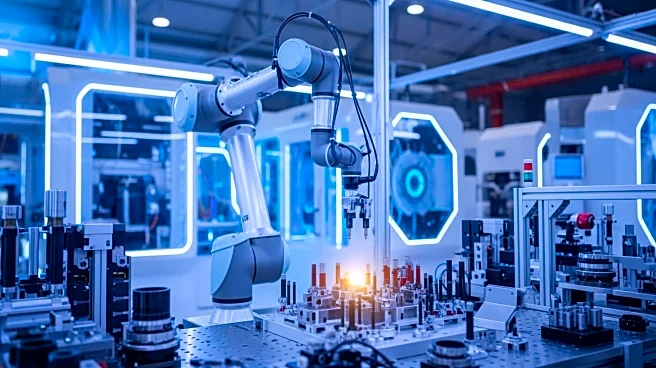What's Happening?
Manufacturing production in the UK has seen an increase for the first time in a year, primarily due to the restart of Jaguar Land Rover (JLR) factories. This follows a shutdown caused by a cyber attack
on August 31. The S&P Global UK manufacturing PMI survey, a key economic indicator, showed an improvement in October with a reading of 49.7, up from 46.2 in September. Despite this uptick, the overall manufacturing sector remains in decline, with new export orders falling for the 45th consecutive month. The increase in production is largely attributed to the automotive sector, particularly JLR's phased restart of production at its Solihull and Halewood sites. However, experts caution that this boost may be temporary, as demand from both domestic and overseas markets remains sluggish.
Why It's Important?
The temporary increase in manufacturing production highlights the vulnerability of the sector to external shocks such as cyber attacks. While the restart of JLR's production provides a short-term boost, the underlying issues of weak demand and tariff uncertainties continue to pose significant challenges. The manufacturing sector, which constitutes about 9% of the UK economy, is crucial for economic stability. The ongoing decline in export orders, particularly from major markets like the US, EU, and Asia, underscores the impact of global trade tensions and tariff disputes. The contraction in employment for the 12th consecutive month further indicates the sector's struggle to maintain cost efficiency amidst these challenges.
What's Next?
The future of the UK manufacturing sector remains uncertain, with potential impacts from upcoming policy decisions, such as the autumn Budget, which may introduce new tax measures. The sector's recovery will depend on resolving tariff disputes and boosting demand both domestically and internationally. Stakeholders, including policymakers and industry leaders, will need to address these issues to ensure sustainable growth. The temporary nature of the current production increase suggests that without addressing these fundamental challenges, the sector may continue to face difficulties in the coming months.











